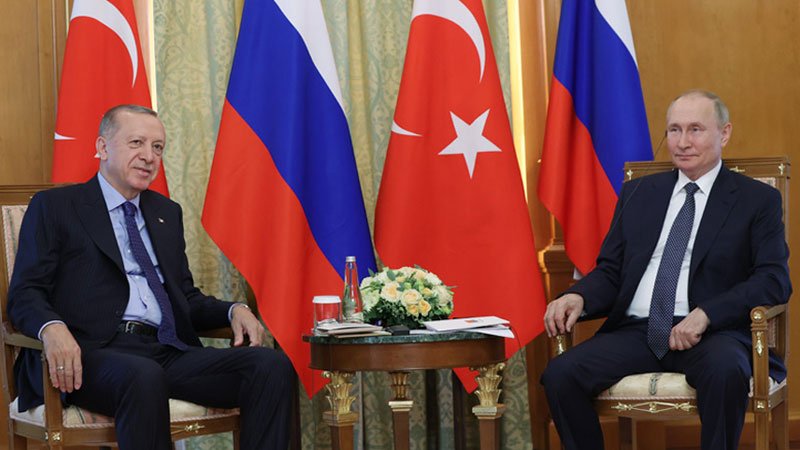Western capitals are concerned about the “deepening ties” between AKP chairman and President Tayyip Erdogan and Russian President Vladimir Putin, and could impose sanctions if Ankara helps Moscow avoid sanctions.
Six ‘Western’ officials told the Financial Times, a British financial newspaper, that they were concerned that the Turkish and Russian leaders “pledged to boost trade and energy cooperation” during their meeting in Sochi on Friday.
A European Union official said the 27-member bloc was “increasingly closely monitoring” Turkish-Russian relations. A Western official said countries could call on their companies and banks to withdraw from Turkey if Erdogan follows the framework outlined at Friday’s meeting.
Three European officials said the EU had not yet held formal discussions on a “response to Turkey.” Some sources, however, emphasized that it would be difficult to impose sanctions on Turkey, as there are differences of opinion within the EU over Russian sanctions.
- Babacan on the Kurdish issue: We will remove the mother tongue from being an issue of conflict
- Is the grain crisis over?
- Babacan condemns targeting of Alevis: Attacks will not achieve their goal
The Financial Times said it was not ruled out that some Western countries could impose sanctions on Ankara on their own, without a formal EU decision. “For example, they could ask for restrictions on export financing and ask big financial companies to reduce their financing to Turkish companies,” one official said, adding, “If Turkey gets too close to Russia, I wouldn’t rule out negative responses.”
The possibility of sanctions against Turkey came to the fore after Ukrainian intelligence and a Western diplomat obtained a Moscow document outlining how sanctions could be circumvented through Turkish banks.
On his return from Sochi, President Erdogan confirmed that Turkey had agreed to pay for some of its natural gas supplies from Russia in Russian roubles.
Western capitals are reportedly uncomfortable with the “deepening ties” between AKP leader and President Tayyip Erdoğan and Russian President Vladimir Putin and could impose sanctions if Ankara helps Moscow avoid sanctions.
Six ‘Western’ officials told the Financial Times, a British financial newspaper, that they were concerned that the Turkish and Russian leaders “pledged to boost trade and energy cooperation” during their meeting in Sochi on Friday.
A European Union official said the 27-member bloc was “increasingly closely monitoring” Turkish-Russian relations. A Western official said the countries could call on their companies and banks to pull out of Turkey if Erdogan follows the framework outlined at Friday’s meeting.
Three European officials said the EU had not yet held formal discussions on a “response to Turkey.” Some sources, however, emphasized that it would be difficult to impose sanctions on Turkey, as there are differences of opinion within the EU over Russian sanctions.
The Financial Times said it was not ruled out that some Western countries could impose sanctions on Ankara on their own, without a formal EU decision. “For example, they could ask for restrictions on export financing and ask big financial companies to reduce their financing to Turkish companies,” one official said, adding, “If Turkey gets too close to Russia, I wouldn’t rule out negative responses.”
The possibility of sanctions against Turkey came to the fore after Ukrainian intelligence and a Western diplomat obtained a Moscow document outlining how sanctions could be circumvented through Turkish banks.
On his return from Sochi, President Erdogan confirmed that Turkey had agreed to pay for some of its natural gas supplies from Russia in Russian roubles.

